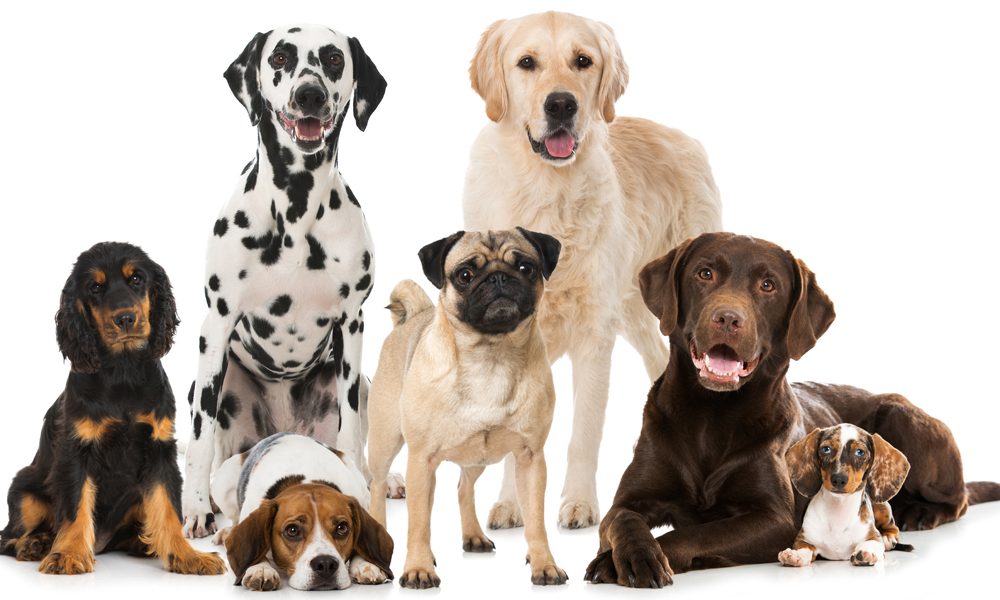What makes your dog tick? And how do you know if a dog has the potential to be a good fit with your family? A great place to start is thinking about the job the dog was bred to do. Based on the physical and personality traits of the 195 breeds recognized by the AKC, most fall under one of the seven major dog groups. These seven major dog groups are working, herding, hound, sporting, non-sporting, terrier, and toy.
Whether your dog is a single breed or a mixture of many breeds across different groups, getting to know the traits the dogs were bred for can provide a lot of insight into their energy levels along with their drive and what piques their interest. Knowing this can help you create a great life for your four-legged friend.
Working group dogs
We call on these athletic, intelligent, watchful dogs to get the job done. Most of these working dogs are large breeds, at 70+ pounds in weight.
These working group dogs can guard people and property, haul sleds, and perform water rescue.
They have busy brains and energetic bodies so plenty of enrichment and space to roam and run will keep them happy.
With their strong, willful personalities, they require a pet parent who’s willing to take charge when it comes to training and socializing.
Though working group dogs require some extra time and space, you’ll gain a best friend that’s willing to protect you, and that can feel pretty amazing.
To learn more, read Ode to large breed dogs and why pet parents love them.
Which breeds belong to the working group?
- Akita
- Bernese Mountain Dog
- Boxer
- Bullmastiff
- Great Dane
- Newfoundland
- Portuguese Water Dog
- Rottweiler
- St. Bernard
- Siberian Husky
Herding group dogs
Like the working dog, herding dogs are stacked with brains and athleticism that make them excellent companions for an active lifestyle.
In fact, herding group dogs share so many similarities with working group dogs, these breeds were considered working dogs until 1983.
What separates herding dogs from the pack is their responsiveness and awareness of other animals, and their drive and aptitude to keep them under their watch and control.
Provide plenty of mentally stimulating activities and exercise, and you’ll gain a loyal dog that’s super attuned to you and your family.
Which breeds belong to the herding group?
- Australian Cattle Dog (aka Blue Heeler)
- Austrian Shepherd
- Border Collie
- Corgi
- Collie
- German Shepherd
- Old English Sheepdog
- Shetland Sheepdog (aka Sheltie)
Hound group dogs
The nose knows when it comes to dogs in the hound group. Though there may be some overlap with sporting dogs, their strength lies in their impressive scent-tracking abilities to chase and sometimes catch prey.
One in particular, the Rhodesian Ridgeback, is capable of chasing lions and is bred to help hunters get on the right path.
Be sure to encourage their gift with games and activities centered on nose work. If you live with or near smaller pets and children, be mindful of situations that might trigger their prey drive, so you can keep everyone safe.
Which breeds belong to the hound group?
- Afghan Hound
- American English Coonhound
- Basset Hound
- Beagle
- English Foxhound
- Dachshund
- Greyhound
- Irish Wolfhound
- Rhodesian Ridgeback
- Whippet
Sporting group dogs
Sporting group dogs were bred to be the helper of the wildfowl hunter.
Retrievers are bred to bring back harvested game without damaging the felled bird.
Setters, pointers, and spaniels were bred to signal to humans when they picked up on the scent of wildfowl.
Sporting group dogs are attentive and attuned to their humans and environment, and have plenty of stamina for long treks in the great outdoors.
While they can be high energy, these aim-to-please pets are easily trained, making excellent additions to the family.
Looking for a great family pet? Read The best dog breeds for kids and families.
Which breeds belong to the sporting dog group?
- American Water Spaniel
- Brittany
- Cocker Spaniel
- English Setter
- German Shorthaired Pointer
- Golden Retriever
- Irish Setter
- Labrador Retriever
- Pointer
- Weimaraner
Non-sporting group dogs
There’s no one way to describe this broad category of dogs.
Some are dedicated couch potatoes while others are happiest when they have space to run and explore.
Some are easygoing, whereas others will keep you on their toes with their independent personalities.
But where this diverse group of non-sporting dogs finds common ground is how they provide love and companionship to their human families.
Which breeds belong to the non-sporting group?
- Bichon Frise
- Boston Terrier
- Bulldog
- Shar Pei
- Chow Chow
- Dalmatian
- French Bulldog
- Poodle
Terrier group dogs
Determined, high-spirited dogs with an independent streak are what you get in a terrier. Bred to pursue and root out vermin and sound the alarm on intruders, these dogs let very little escape their keen senses.
Without proper training and direction, terriers can develop unwanted habits like nuisance barking, digging, and destruction of shoes and other things around the house.
Some terrier breeds may have an instinct to pursue prey, which means staying a step ahead of your pet and anticipating things that trigger this drive.
The key to a happy life with a terrier is plenty of training, exercise, and enrichment. These activities create strong human-terrier connections. They also provide terriers with a much-needed channel for their stores of energy and zest for life.
For further reading, check out What are Bully Breeds?
Which breeds belong to the terrier group?
- Airedale Terrier
- American Staffordshire Terrier
- Bull Terrier
- Norwich Terrier
- Rat Terrier
- Russell Terrier
- Scottish Terrier
Toy Dog Group
These companion dogs may be small, but they come with big hearts and big personalities. That’s what makes life with a toy dog delightful.
Origins of the various toy breeds vary wildly. Some are lap-sized versions of terriers and other larger-sized dogs while others are bred specifically to provide a friendly furry friend.
If you live in a smaller space or are thinking about getting your very first dog, a canine with these breeds in their lineage is a wonderful option.
To learn more, check out Big Reasons to Get a Small Dog.
Which breeds belong to the toy dog group?
- Cavalier King Charles Spaniel
- Chihuahua
- English Toy Spaniel
- Maltese
- Miniature Pinscher
- Pekingese
- Pomeranian
- Pug
- Shih Tzu
- Yorkshire Terrier
Healthy gut, Healthy mutt!
Maximize your years with your beloved dog by choosing a high-quality diet that promotes life-long health. Family-owned NutriSource formulates all their pet foods with the innovative Good 4 Life® system. The patented prebiotic and probiotics aid in optimal absorption of nutrients to bolster your pet’s immune system. Gut health and proper immune function are inextricably linked. Find NutriSource at your local, independent pet retailer.


